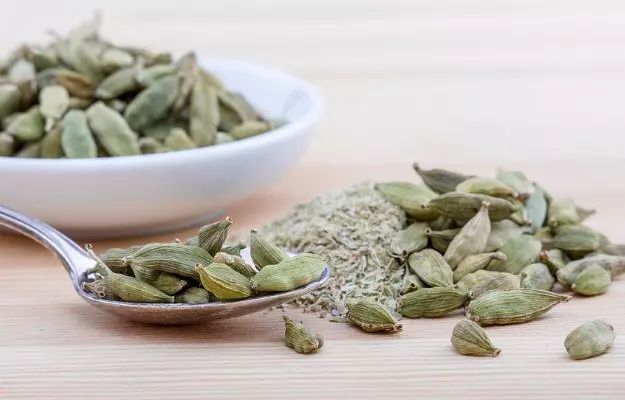Cardamom, also called Elaichi is a small green pod with black seeds inside. It is an ancient spice which originated in the western ghats of southern India. Its modern-day production is spread from Indo China and Tanzania to Guatemala and Sri Lanka. The ancient uses of cardamom vary from being a tooth cleanser for the Egyptians to being used as a perfume for the Greeks and Romans.
Cardamom is the third most expensive spice after saffron and vanilla. The market today offers various inferior substitutes of cardamom which come from plants that are similar to cardamoms such as the Nepal cardamom, Siam cardamom, Bastard cardamom, and Winged Java cardamom. However, Elettaria cardamom is the only true form of cardamom. In India there are two main varieties of cardamom namely the Malabar cardamom and Mysore cardamom.
Guatemala is the largest producer and exporter of cardamoms in the world, followed by India and Sri Lanka. The largest producer of cardamoms in India is Kerala, accounting for 70% of the total country’s production. This is followed by Karnataka and Tamil Nadu.
Cardamom has a pleasantly sweet aroma that is linked to a lot of traditional Indian recipes. Cardamom mainly features in curries and rice dishes and it is one of the most common flavour in most Indian desserts. In fact, cardamom is considered as a ‘festive’ spice. Cardamom is also a defining flvour in some Indian sweet drinks.
In Indian meals, cardamom seeds are generally without the pods. The Pods are neutral in flavour and they leave an unpleasant aftertaste to the dish.
Some basic facts about Cardamom:
- Scientific Name: Elettaria cardamomum Maton
- Family: Zingiberaceae
- Common Name: Elaichi
- Native region and geographical distribution: Cardamom is mostly cultivated in the evergreen forest situated in Western Ghats of Southern India. Apart from India, cardamom is commercially grown in Guatemala, Tanzania, El Salvador, Vietnam, Laos, Cambodia etc. The major cultivars of cardamom also include eastern Nepal, Darjeeling, Sikkim, and southern Bhutan.
































